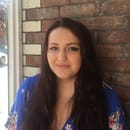Eyeda Sophia– a queer, Caribbean, Toronto-based rapper– hasn’t always been the outspoken 24-year-old woman she is today. Growing up in Maple, ON, Sophia’s family lost their house due to financial difficulties and from 16, she has been moving from place to place.
With an Indo-Guyanese mother and a Russian-Jewish father, Sophia had a diverse childhood, attending Hebrew school and going to temple.
“Growing up mixed, you feel like you don’t belong anywhere,” she says. “The brown kids think you’re not brown enough and the white kid’s thing you’re not white enough.”
Sophia struggled with her sense of belonging as she negotiated her sexuality at a young age. While acknowledging she was attracted to girls as a child, she recalls being homophobic as a consequence of her upbringing. She remembers her uncle teaching her a Buju Banton that was discriminatory and violent. In this sense, Sophia had to grow into her own and figure out for herself what she was interested in.
“There was nothing for me to identify with in terms of race and culture, so I had to find my place,” she says.
In grade 9, Sophia began to write slam poetry without even realising it. During a poetry class, her drama teacher encouraged her to perform in downtown Toronto, introducing her to the scene where she gave her first performances as an artist.
The strong artist hub and community for spoken word in Toronto is why Sophia gravitated towards the city for the best opportunities and platform for her work.
Starting out at places like Toronto Poetry Slam and BAM! Youth Slam, then progressing to cyphers (loosely structured shows where people typically form a circle, then rappers can jump in and freestyle over the beat that’s playing), Sophia has become a familiar face around the city.
Writing from her own personal experiences, Sophia’s past work has focused on women’s issues, intersectionality and sexism. As her style evolved from poetry’s typical form, she welcomed the musicality and “stream of consciousness” that came with rap.
“I focused on things that made me limit myself,” says Sophia. “The two pieces of music I’ve released were an extension of belonging, not feeling comfortable within my body, insecurity and then streamlining down into self-love and reclaiming things that are usually used against me.”
Making music that is relatable and connects to audiences is at the forefront of what Sophia is creating.
“When people listen to you and you evoke emotion in others, it gives you a lot of power that you didn’t have before. Especially as a young person who feels displaced.”
Previous artists featured in the series have emphasis the difficulties faced by women and racialized artists in the D.I.Y. music scene. For Sophia, being a female rap artist comes with its challenges due to the male-dominated area of the industry she is starting out in. Despite her success, she still finds herself struggling for acknowledgement: when the male producer she’s dating comes to her events, she says people only see him. Even for top female rappers, there’s still a sense of prejudice: the two women currently making headlines are Nicki Minaj and Cardi B, but because of their beef, not their individual talent.
“Hip-hop has a negative connotation that there can only be one woman at the top but several men,” says Sophia. “There can be mediocre men getting love and shows because this was made for them, but women have to be the best.”
“When I step in a room, I have to be the best. There’s no middle ground. I have to be the best, or I receive no recognition.”
Nonetheless, through uplifting women of colour and their voices, change can happen.
“I see how they treat different women based on their skin tones, based on where they come from and who they are. It’s constantly going to be a battle because we’re in a male dominated sport. I think the only way to correct this, is to build inclusive spaces on the backs of women of colour.”
You can listen to Eyeda Sophia here.


